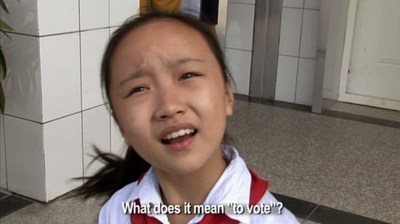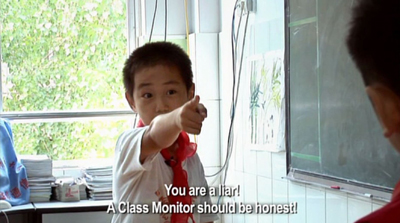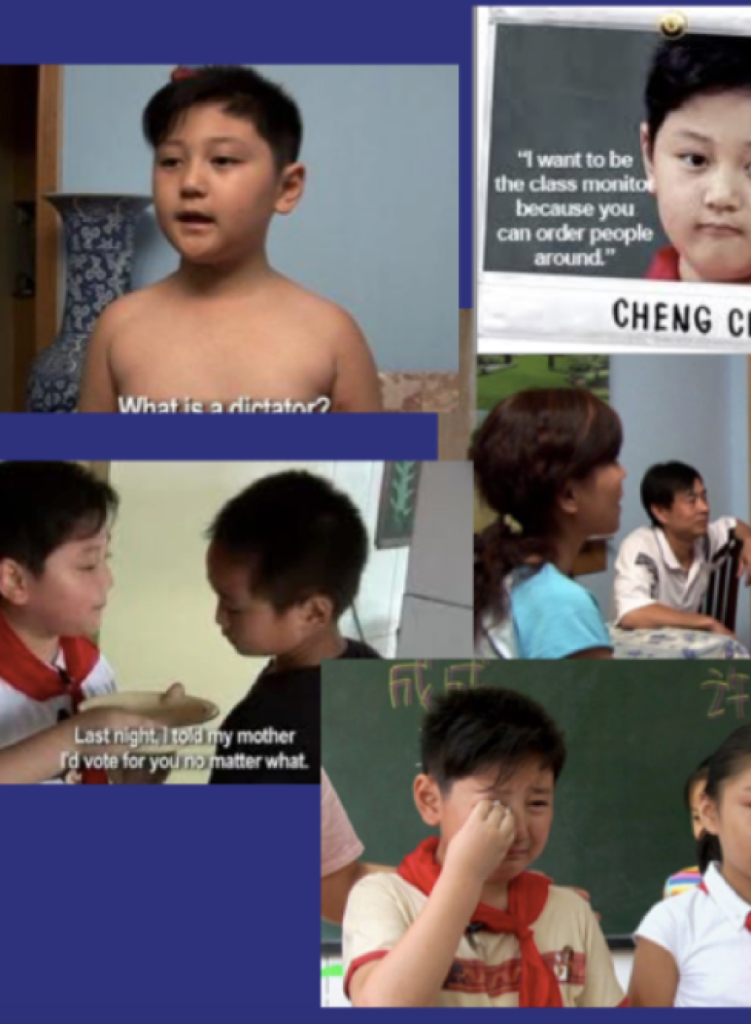The question of whether the students in the movie are participating in a democracy is predicated on how one defines democracy. According to Tocqueville, though democracy is a dynamic and changing process, its central tendency is to level the social order, flattening existing hierarchies of power and converging the social position and control of elites with those of the common man. This process of democratization is predicated on the existence of a political culture; the internalization of egalitarian values that serve as the basis upon which democracy is built. By these two standards, those the election depicted in the movie has the process most associated with democracy, it is at best a hollow simulacrum of true democracy.
The students in the class exhibit very little understanding of democracy, as the film director asks one girl “What is democracy?”, he receives no answer. Even the candidates themselves exhibit little understanding for the system, coached by their parents through the whole process and apparently drawn to the power and privilege the elected position entails, rather than any democratic values or genuine desire for reform. Parental involvement entails not only moral support, but what best described as corruption as Luo Lei’s parents organize and pay for a free trip for the whole class.
The position itself is no way reflective of the democratic political culture that Tocqueville believes true democracy is predicated upon. The class monitor enjoys sweeping powers to punish and discipline other students, evidently not as a part an egalitarian power structure. The ultimate function of the monitor is to ensure and enforce conformity, a value not compatible with true democracy.



